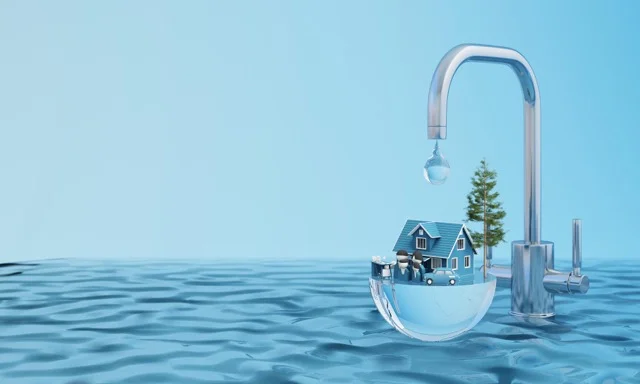Some Known Incorrect Statements About Reclaim Waste
Some Known Incorrect Statements About Reclaim Waste
Blog Article
Fascination About Reclaim Waste
Table of ContentsGet This Report about Reclaim WasteEverything about Reclaim WasteReclaim Waste Things To Know Before You Get ThisReclaim Waste for DummiesRumored Buzz on Reclaim Waste
Check out the types, occurrences, and kinds of liquid waste. Residential sewer waste describes the waste and items from a household septic system. This type of waste is created by people in residences, colleges, and various other buildings. This only includes septic systems that have a drainpipe field. The correct monitoring and disposal of residential sewage waste need fluid waste to be transferred to a sewage treatment plant where the correct approaches and tools are applied to detoxify and dispose of waste.
Commercial waste often consists of prospective risks, such as flammable products or a mixture of fluid and strong waste products, and calls for an advanced and in-depth disposal procedure. The disposal of industrial waste generally entails the filtering of waste before transport to ensure secure and correct disposal. Industrial waste is produced from byproducts and overflow of industrial processes and manufacturing.
This type of waste can not utilize the same sewage administration transport or processes as septic or industrial liquids. The commercial waste monitoring procedure requires the assessment and screening of fluid waste before it undergoes the disposal process (industrial wastewater treatment). Overflow waste is the liquid waste that originates from runoff and excess stormwater in very booming locations or cities
Drainage waste can create contamination and flooding if not handled correctly. Discover more about sewer cleansing and waste monitoring. Making certain correct waste monitoring can prevent catastrophes and lower ecological damage. Both individuals in property settings and experts in business or production sectors can benefit from comprehending the processes and policies of liquid waste monitoring.
Some Known Factual Statements About Reclaim Waste
Call PROS Providers today to find out regarding our waste management and disposal solutions and the appropriate methods to take care of the liquid waste you generate.
(https://www.blogtalkradio.com/reclaimwaste1)This supposed 'wastewater' is not just a crucial resource however, after therapy, will be released to our land, rivers or the ocean. Utilized water from commodes, showers, baths, cooking area sinks, laundries and commercial processes is understood as wastewater.

water made use of to cool equipment or tidy plant and devices). Stormwater, a kind of wastewater, is runoff that streams from farming and metropolitan locations such as roofing systems, parks, yards, roads, courses and gutters into stormwater drains pipes, after rainfall. Stormwater flows neglected straight to neighborhood creeks or rivers, ultimately getting to the sea.
The Ultimate Guide To Reclaim Waste
In Queensland, a lot look at here of wastewater is treated at sewer treatment plants. Wastewater is delivered from domestic or industrial websites through a system of drains and pump terminals, called sewerage reticulation, to a sewer treatment plant. Regional governments develop, maintain and operate most sewage therapy plants. Operators are licensed under the Environmental Management Act 1994 to discharge cured wastewater at an appropriate ecological requirement into waterways.
The Division of Natural Resources recommends local governments concerning managing, operating and preserving sewerage systems and therapy plants. In unsewered areas, city governments may require householders to install individual or household sewage therapy systems to deal with domestic wastewater from toilets, kitchens, washrooms and washings. The Division of Natural Resources authorizes making use of family systems when they are confirmed to be reliable.
In some new class, treatment of some stormwater to get rid of litter, sand and gravel has actually begun making use of gross toxin traps. Wastewater treatment takes place in four phases: Removes strong matter.
Uses little living microorganisms understands as micro-organisms to damage down and eliminate remaining dissolved wastes and fine particles. Micro-organisms and wastes are included in the sludge.
Indicators on Reclaim Waste You Need To Know
Nutrient removal is not available at all sewage treatment plants since it calls for costly specialist tools. Clear fluid effluent produced after treatment might still contain disease-causing micro-organisms - liquid waste removal melbourne.

Most wastewater streams into the sewage system. Under the Act, regional federal governments carry out approvals and permits for eco relevant tasks (ERAs) entailing wastewater releases that could have a neighborhood effect.
7 Easy Facts About Reclaim Waste Described
Monitoring supplies valid details about water high quality and can verify that licence conditions are being satisfied. The information obtained through monitoring provides the basis for making water quality decisions.
Report this page